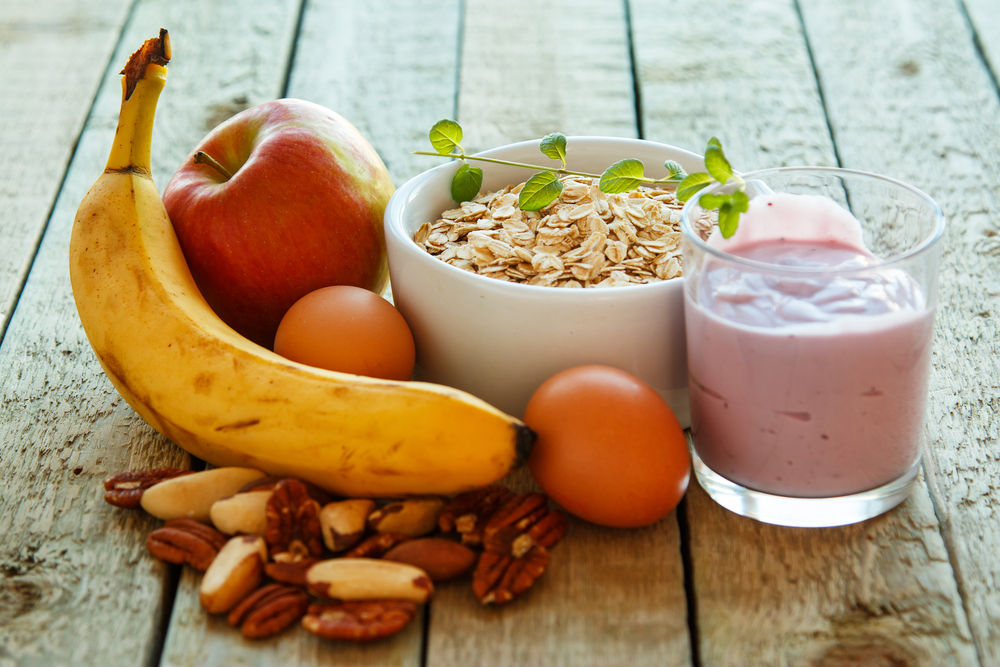
Whether you are a novice runner or a seasoned one, a morning runner or someone who trains during the latter part of the day, fueling your body adequately for the workout is important. As such, deciding on what to eat before running needs some consideration. Here are answers to some of the most common questions put forward by runners:
Should I eat before I run?
The answer is without a doubt, yes! Contrary to popular belief, exercising on an empty stomach is not such a great idea. And since there is no single superfood that works equally well for all runners, every individual will need to experiment with different pre-run snacks or meals and find one that suits them best. However, following some basics on nutritional requirements and timing can help make smart choices on what to eat before running.
Generally, runners aim to establish their daily calorie consumption based on their weight and intensity of the workout. The longer and more intense the workout, the more fuel is needed and vice versa.
What is the best thing to eat before a run?
The main fuel source for training is carbohydrates that are stored in the muscles and liver as glycogen. During training, when the body exerts itself, it draws on these carbohydrates for energy. When making a choice regarding what foods to eat before running, think foods that are high carb but low fiber and low fat.
While it is true that foods should predominantly be high sources of carbs, they should also be foods that you are comfortable eating and do not feel too heavy in your stomach once you start your running regimen. For snacks that boost energy, choose smaller carbohydrate snacks which boast a high glycemic index. The higher the glycemic index of foods, the quicker they are digested and broken down into glucose for energy. Such foods are absorbed faster by the body and do not strain the digestive tract unnecessarily.
On the other hand, carbohydrates with a low glycemic index are recommended to be consumed with regular meals while training so that their energy is released slowly into the bloodstream and will cater long term energy to the body.
What to eat 2-4 hours before running:
Full meals containing carbs, protein and healthy fats.
- Grilled chicken with quinoa
- Cheese and veggies with whole wheat pasta
- Grilled fish wrap with lettuce and avocado
- Cheese and veggie omelet with toast
- Deli wrap with 1 cup shredded veggies
Avoid including fibrous veggies and foods with a high fat content.
What to eat 1-1 ½ hours before running:
A small snack that provides easy-to-digest carbs and some protein.
- Banana with a 1/8 cup of almonds
- Whole grain crackers and hummus
- Small bowl of cereal
- Cheese sticks and carrots
- Low fat fruit yogurt
- 1 cup berries with ½ cup low fat cottage cheese
- Peanut butter and banana sandwich
Avoid having fruits that may cause gas such as apples, melon or pears.
What to eat 15-30 minutes before running:
Small servings of carbs that are easily digested.
- Applesauce
- Saltine or graham crackers with 1 tsp of honey
- Raisins
- Half a banana
- ½ cup low fat cereal with skim milk
Avoid any foods that have high saturated fats or are high in fiber. And of course: do not forget to apply your 2SKIN in order to perform pain-free, with no limits!
What to eat before a morning run?
Early morning runners are likely to have smaller stores of glycogen in their system after the night’s rest and not having eaten for between 6-8 hours. Ideally early morning runners should look for easily digestible foods and not those that take longer to digest. For the early riser, who wakes up an hour or two before running, breakfast recommendations include oats, wholegrain toast with eggs, granola, breakfast muffins, bagels or freshly made smoothies. But if you are one to hit the track straight out of bed, then the best foods to eat before running can centre on small, quick snacks such as a shake, dried or fresh fruit or else nuts and seeds.
Helpful breakfast suggestions for people who do their running in the morning can include the following ideas:
- Pancakes topped with fruits and/or nuts
- Bread topped with scrambled egg
- Oats with milk or soy milk
- Fruit salad
- Low fat Greek yogurt topped with fruit
- Breakfast muffins or bagels spread with low fat cheese spread
- Fruit juice or smoothie
However, not everyone may be able to eat first thing in the morning. For these runners it is recommended to eat a larger portion of carbohydrates during the evening meal the night before as this will be stored in the muscles ready for the morning run.
What to avoid eating before a run?
Just as there are recommended foods to eat before a run, there are also foods that should not be consumed prior to running. Fueling your body the wrong way can cause uncomfortable symptoms like stomach cramps, headaches and dizziness. It is recommended to avoid foods with a high fiber content, excessively fatty foods, unusually spicy foods or drinking too much caffeine or alcohol.
Hydrating before running is also very important. So make sure to drink about 15-20 ounces of water an hour or two before training and just about 15 minutes prior to the run, sip another 8 ounces.
What are YOUR ideal nutrition-routines before exercising? Use comments below to share your expertise and support each other! 🙂